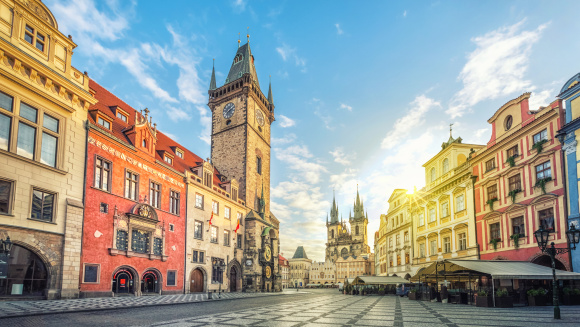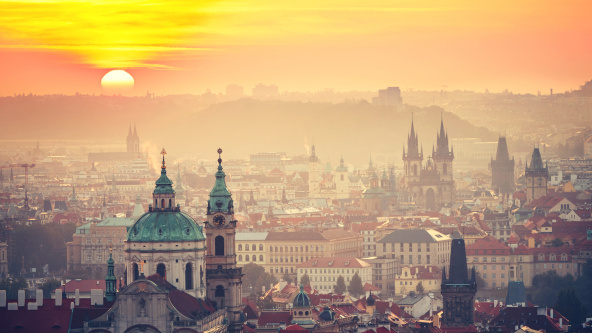Living in Prague: an expat guide

What to expect when moving to Prague
Prague is a wonderful place to visit for a short time as a tourist but what is it really like after the initial euphoria has worn off, the boxes have arrived, the children are at school and your partner has been sucked into a sheltered corporate world serviced by young, well-educated and charming multi-lingual local staff? After all, the Czech Republic is now in the European Union and on the way in from the airport you can see the huge Tesco and IKEA, and Marks & Spencer is even in Wenceslas Square.
EU membership (since 2004) has made things a bit easier for EU citizens who move here but as with many officials in former communist countries, the rubber stamp rules. Eventually, most things are possible, but do not expect that you can do things on the phone or that the necessary offices are open to the public Monday to Friday — and forget getting anything done on a Friday in summer!
Celebrate the fact that you are in the ‘heart of Europe’ and only a few hours from several other interesting countries.
Winters are not too cold for too long, and summers can be lovely with endless sunny 25-30C+ (80 - 90F+) days, but like everywhere, weather patterns are less predictable.
Where to live in Prague
Prague is divided into numbered districts, from Prague 1 to Prague 22. Each district offers a unique vibe. There is a large and varied expat community scattered around the city with many families choosing to live away from the central Prague 1 and Prague 2 districts and opting for houses in the Prague 4 and 6 districts near to many of the international schools.
Public transport is safe, cheap, and good with an integrated system of trams, buses, and metro. However, it is not so great the further you get from the centre — something to check when you are looking for a house.
Day-to-day living in Prague
Meeting new people
Czechs are not easy to get to know but it’s well worth the effort, as is learning at least basic Czech which is always appreciated even if, in Prague, you may well be answered in English. Outside Prague, however, some Czech is vital, particularly with older people and in shops. Being a scattered expat community, some people may find it hard to make new friends but the main international schools encourage parent participation and school gates are always a good place to network.
Driving
Czechs’ appalling driving has improved dramatically over the years, with the introduction of new laws with a penalty points system and draconian fines, but bad manners still rule! Parking in the centre is difficult but not so at the many out-of-town shopping centres which are sprouting up all around Prague.
The last word
Prague is a nice place to live but make the most of your time here and explore the rest of the country as well with its many lovely towns and villages. Celebrate the fact that you are in the ‘heart of Europe’ and only a few hours from several other interesting countries. There are good road and rail connections plus many low-cost airlines operating from Prague’s international airport — and you will soon learn which taxi companies are honest!
All the latest advice from our education experts, straight to your inbox.
Featured in: Czech Republic Prague

